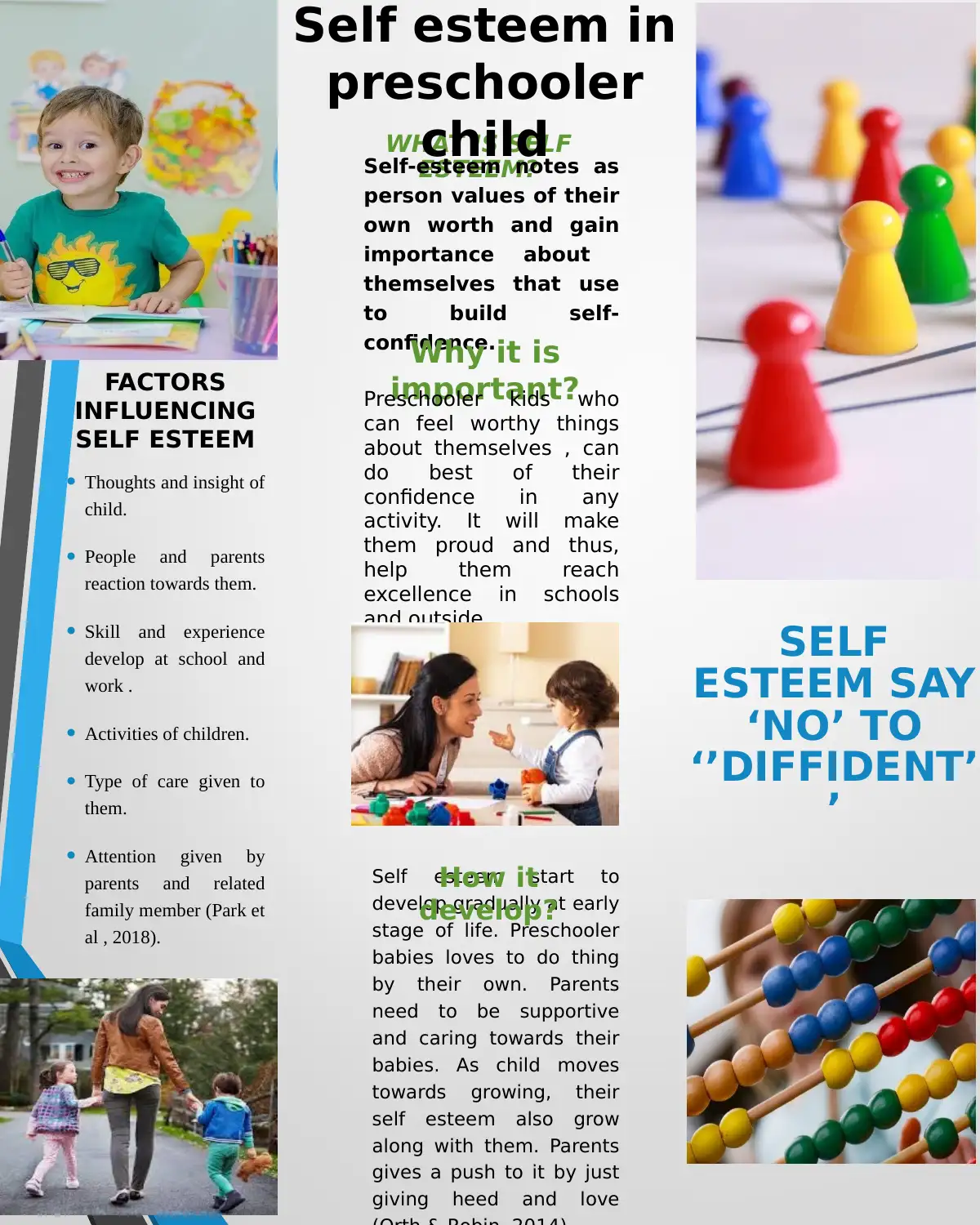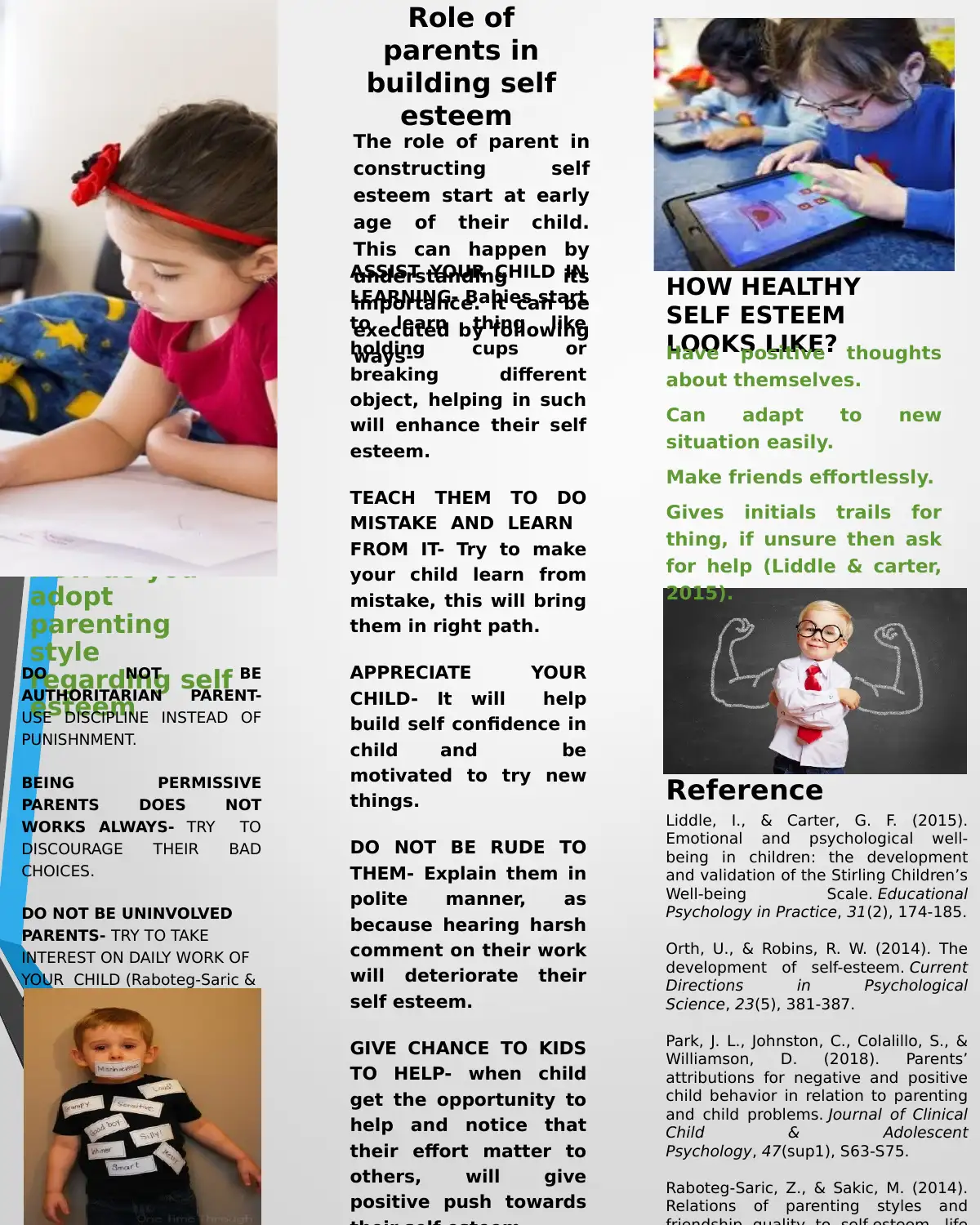Strategies for Parents to Enhance Self-Esteem in Preschool Children
VerifiedAdded on 2023/04/06
|2
|517
|398
Report
AI Summary
This report provides an overview of self-esteem in preschoolers, defining it as a child's perception of their own worth and importance, which contributes to self-confidence. It identifies factors influencing self-esteem, including a child's thoughts, reactions from parents and others, and their skills and experiences. The report emphasizes the importance of self-esteem for preschoolers, noting that it enables them to confidently excel in various activities, both in and out of school. It details how self-esteem develops from an early age, with parents playing a crucial role by providing support and encouragement. The report offers practical advice for parents, such as assisting children in learning, using discipline instead of punishment, and appreciating their efforts. It also describes the characteristics of healthy self-esteem, like positive self-perception, adaptability, and willingness to seek help. The report concludes by urging parents to avoid being rude and instead communicate politely, as harsh comments can negatively impact a child's self-esteem.
1 out of 2






![[object Object]](/_next/static/media/star-bottom.7253800d.svg)